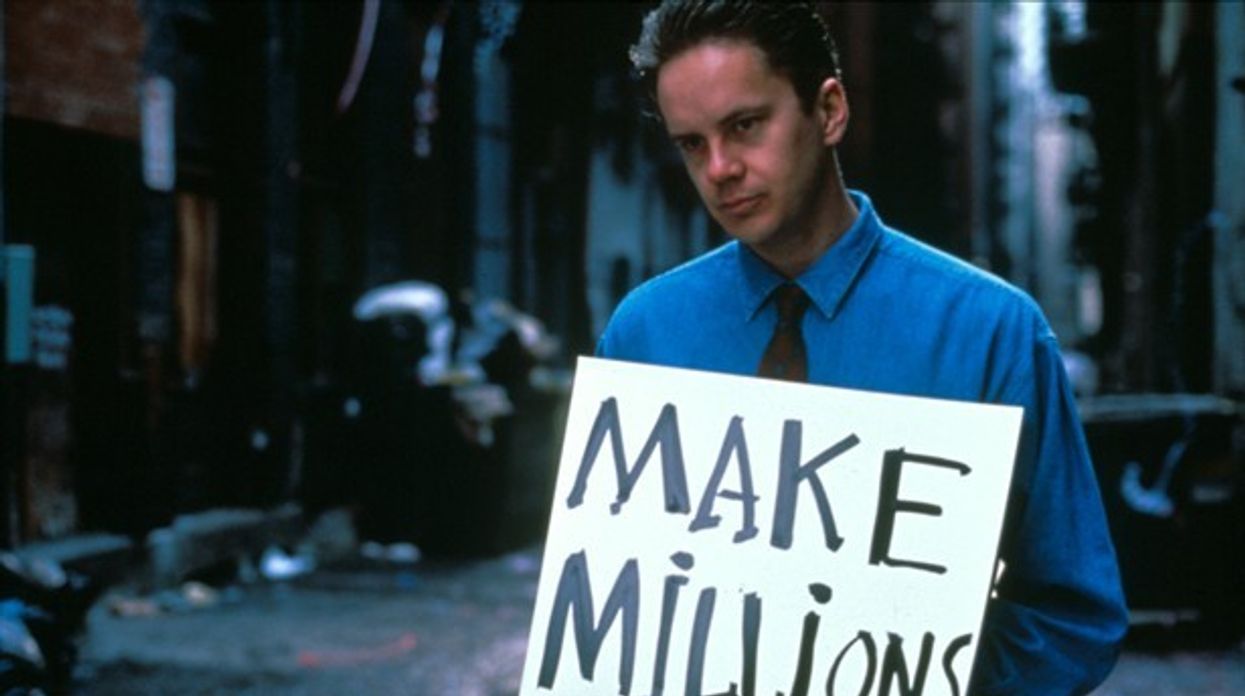4 Takeaways From Director Tim Robbins on Creativity Behind and In Front of the Camera
The Oscar-nominated director (and Oscar-winning actor) has played multiple roles on film sets, often simultaneously.

Tim Robbins has had a towering career. A glance at his IMDB page highlights 73 acting credits, as well as ten directing credits, seven soundtrack credits, four writing credits, and an Oscar nomination for Best Director (for Dead Man Walking in 1995).
The crazy thing? Tim Robbins only got into acting for television so he could quit his job delivering pizza. He started out as a punk-rock pizza delivery boy with aspirations to be a director. But then, he got cast in a film directed by Robert Altman. “I went to the best film school ever, the Robert Altman School,” said Robbins in conversation at the 2018 Karlovy Vary International Film Festival.
Seeing Altman at work, Robbins realized that the idea of the auteur was bogus, leading him to formalize how he would make his directorial debut, Bob Roberts, a satire about the political campaign of a millionaire businessman who loves beauty pageants and wants to save America. Holy Déjà vu, this film was made in 1992?
In the conversation with Gregory Ola at KVIFF (where Robbins was presented with the Crystal Globe for Outstanding Contribution to World Cinema), Robbins gave a look into his career, his influences, and his feelings about the current climate of creativity in America and the world.
After such a prolific career, Robbins was full of inspirational anecdotes and philosophies to share. Below are a few tips that you can glean from the conversation.
1. Avoid the artificial level of the industry in order to keep your creative flame alive
Robbins mentioned that the only way he could live in Los Angeles (and not be brought down by what he characterized as the artificial waste of time that are networking and celebrity parties) was by sticking to himself and his own interests. His agents would tell him to go hang out at the Hard Rock Café, and he would invite them to go downtown and see him put on some obscure German expressionist play.
“There's a certain artificial level of the industry that it's good to avoid if you can,” said Robbins," and fame is a really dangerous thing because it starts elevating people in a way that is unnatural. It’s unhealthy for keeping fresh, for remaining true to whatever the impulse was that brought you to try to create."
"When you are the auteur in your own mind, you stop expanding as an artist."
2. Learn to act with a lot of distractions around you and feel free to distrust your professors
How Tim Robbins learned to act was a huge influence on his career as both an iconic face on screen and as a director. Robbins went to UCLA and studied directing and writing. “I had a distrust of acting teachers,” said Robbins, "as they were teaching a method I was not particularly interested in. I cut my teeth, learned how to act on the streets of New York…every summer we would pull a truck into a neighborhood and put on costumes, do a little parade, and do a social satire on the streets.”
It was this early interest in social satire that eventually motivated Robbins to direct his first film, Bob Roberts.
3. Encourage everyone on your team to be a genuine part of the creative process
Robert Altman is a director that most people would classify as an auteur, and yet, according to Robbins, it was from him that he learned that the idea of the auteur is defunct without the respect for collaborative process. “He made me part of the collaborative process, and that was a huge shot in the arm for me," said Robbins of his first experience under Altman on The Player.
"He wanted to encourage everyone on his crew," Robbins continued, "from every actor to every crew member to even the guy that does the craft service, that they're all part of this creative process. To be asked a question, to know the answer, and then to say 'what do you think?' is to offer the possibility that you might not be right. When you are the auteur in your own mind, you stop expanding as an artist. I tried to steal that from him!"
"What we’re looking for is the truth, not realism but truth."
4. Strive to create the truth over reality
From the beginning, Robbins was not interested in realism for the sake of realism. He saw film as a better way to create realism than say, theater, but ultimately recognized that the importance of filmmaking rested in showing the extremes.
"What story are we telling and why is it right to be telling it right now?" Robbins asked. "No playwright or novelist wrote a great story about a mildly depressed person," Robbins claimed. Instead, art should strike at the essence of things, often in a balance between realism and satire, at least in Robbins' work. "What we’re looking for is the truth," he continued, "not realism but truth, and it can manifest in any form with no words or in a dance. That’s the ambition we should at least strive for."
To watch the entire conversation, click here.











